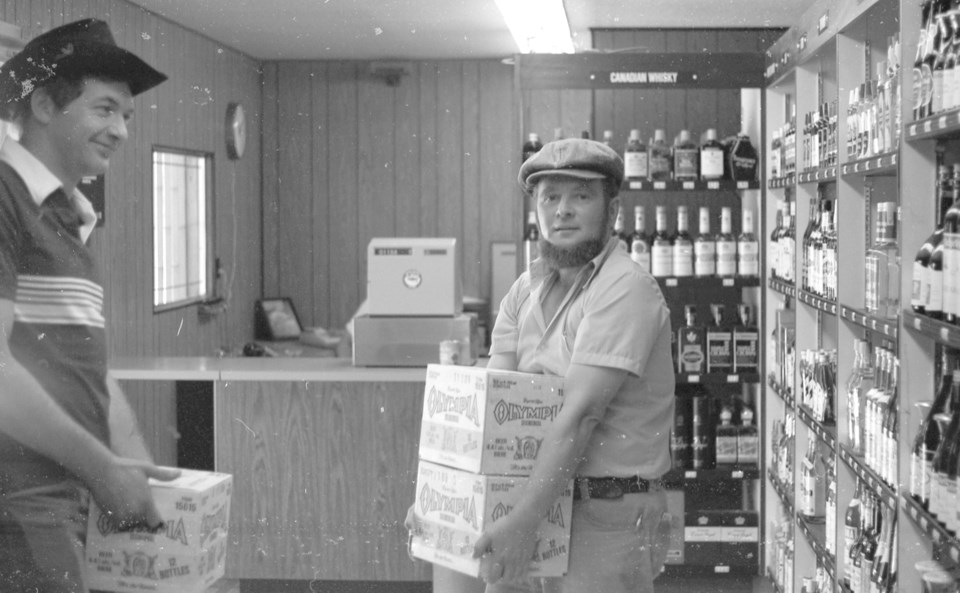The summer of 1978 was a dry one for British Columbia, though not because of the weather. In early June 1978, workers at the three major breweries in the province were locked out during contract negotiations. For the next few months, beer became a limited commodity in B.C., including in Whistler.
That spring, Labatt, Molson and Carling O’Keefe, each of whom employed about 500 workers in B.C., decided to negotiate jointly with the Canadian Union of United Brewery, Flour, Cereal, Soft Drink and Distillery Workers.
Talks began in May but by June little progress had been made and workers at all three breweries were locked out. With few craft breweries in the province and labour disputes with breweries also occurring in Alberta and Manitoba, liquor stores and customers turned to American breweries to try to meet demand. While the Liquor Administration Branch (LAB) imported products through official channels, individuals were not always so dutiful.
On June 14, the Whistler Question informed residents that, “with Alberta now dry, all mercy missions must be directed towards dangerous smuggling operations to the U.S.,” and Maclean’s reported that “Petty smuggling became an art form, and a customs inspector at the Washington border allowed that ‘Canadians are becoming pretty proficient liars when it comes to making declarations.’” (“No rest for the beery,” Dan’l Larocque, Maclean’s, July 24, 1978.)
Within Whistler, the state of beer in the area was discussed almost every week throughout the summer. On June 28, amid predictions that the “near-drought (beer-wise) seems to be sticking around,” the Question reported the supply of local establishments such as the Highland Lodge, the Boot and L’Après like they would sporting statistics, with the Highland Lodge “checking in” at 25 domestic cases of beer.
Though the Liquor Store implemented a two-case limit and tried to buy imported and American brands, the Whistler store was just one of many stores in the province competing for a limited supply. By the end of June, the Liquor Store had no beer at all and did not expect to get any in until July 5 at the earliest, well after the long weekend ended.
When the July 5 shipment did arrive, Whistler’s Liquor Store received only 135 cases of imported European beer out of an expected 500. The beer, which was priced between $11.50 and $13 per dozen (between $45 and $50, when adjusted for inflation), went on sale at 1 p.m. and was sold out by 6 p.m., even with a one-case-per-customer limit. According to store manager Dennis Lemarche, a couple of local restaurants tried to circumvent the limit by asking people in the parking lot to pick up a case, but this was quickly stopped.
Through August, rations of Olympia, Schlitz, Heineken and other brands continued to arrive in Whistler periodically, usually selling out within a day or two. In the lodges and hotels around the valley, supplies of American and imported beer were kept on hand, but as the weather in Whistler got hotter, prices were also reported to rise.
Negotiations between the breweries and the union progressed and by the fall employees were able to go back to work. In the stores, however, a new problem developed; the LAB announced that it had a backlog of about 2 million cases of American beer that needed to be sold before they could begin stocking Canadian brands as usual.
Brands that, during the summer, had been in high demand were put on sale at prices comparable to Canadian beer in an effort to reduce stockpiles in warehouses and stores, but it was not until mid-October, 1978, that Whistler’s Liquor Store once again sold Canadian beer. The summer, however, had changed some people’s habits, and according to the LAB, one case in every four sold continued to be imported.




